5 reasons you get those annoying morning headaches
Confused as to what causes that awful headache? These might help
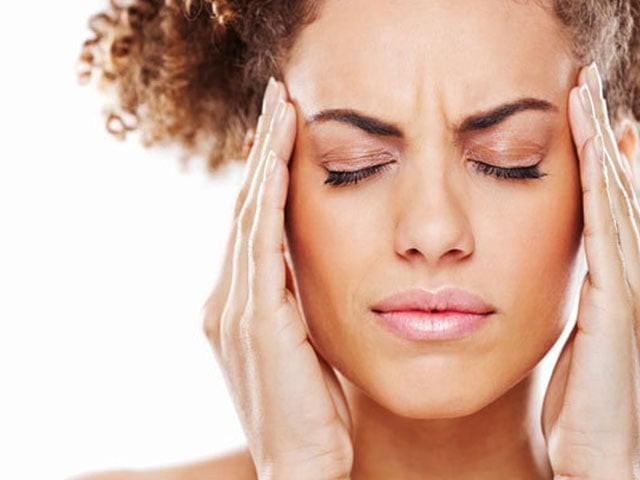
PHOTO: FILE
Compiled from Prevention magazine, here is a list of five surprising causes of morning headaches, and what you should be doing to keep them away.
7 belittling things we say to people suffering from anxiety
1) Your endorphins are out of whack
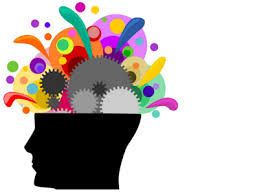 PHOTO: BIOLOGYONLINE
PHOTO: BIOLOGYONLINEYour body's production of feel-good endorphin hormones is at its lowest early in the morning. And for some people, that can trigger a migraine. Low levels of endorphins can affect levels of other neurotransmitters, like serotonin, which cause blood vessels in the brain to narrow, explains Mark Khorsandi of the Migraine Relief Centre in Dallas and Fort Worth.
That narrowing reduces blood flow to the brain, which can trigger head pain. The bad news is that experts don't know why this causes headaches in some people and not others. But working out first thing in the morning could be one way to stop the pain, since exercise triggers the release of endorphins, Khorsandi says.
2) You snore
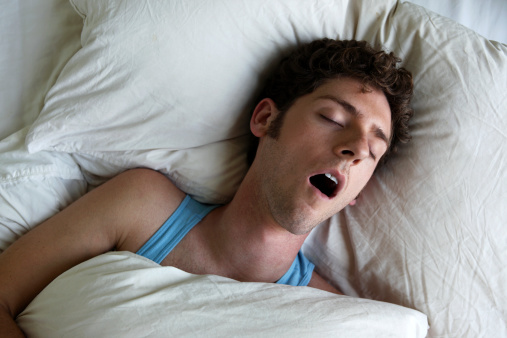 PHOTO: METRO.CO.UK
PHOTO: METRO.CO.UKSnoring like a chainsaw can be a sign of sleep apnea, a condition that can cause you to choke, gasp for air, and even temporarily stop breathing throughout the night while you're asleep. These choking episodes only last for a few seconds, but they can result in less oxygen getting to your brain, adds Khorsandi.
Experts aren't totally sure why this might lead to a headache. But some experts theorise that less oxygen could cause blood vessels in the brain to expand, increasing blood flow and pressure in your head that can cause pain. You can have sleep apnea and not even realize it, especially if you don't sleep with a partner (who might complain about your snoring).
3) You’re late with your coffee
 PHOTO: PARKINSON ASSOCIATION OD ALABAMA
PHOTO: PARKINSON ASSOCIATION OD ALABAMACaffeine is a mild drug that stimulates your nervous system. So if you drink coffee regularly and don't get your fix at the usual time (like if you sleep in, or if you're trying to quit caffeine), you can feel the head-pounding effects when you wake up. Caffeine withdrawal abruptly leads to the expansion of blood vessels in your brain. As a result, more blood flows into your brain and exerts more pressure, causing a headache, says Salvatore Napoli, MD, of the New England Centre of Neurology.
You're more likely to get a caffeine headache if you're a heavy coffee drinker or drink your coffee at the same time every morning. If that's the case, downing a cup is the best way to feel better. And if you're trying to kick your caffeine habit altogether, cut back slowly—over the course of a week or two—instead of going cold turkey.
4) You’re depressed
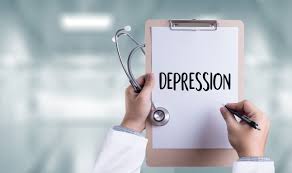 PHOTO: PSYCH CENTRAL
PHOTO: PSYCH CENTRALDepression-related headaches can happen at any time of day. That's because depression is associated with lower levels of the hormone serotonin. But they could be particularly likely to strike in the morning.
Depression can mess with your usual sleep schedule, and snoozing too much or too little can both trigger headaches, Napoli says. The pain can also have an impact on your mood, creating a vicious cycle.
9 things about raising girls’ moms wish they knew sooner
5) You have high blood pressure
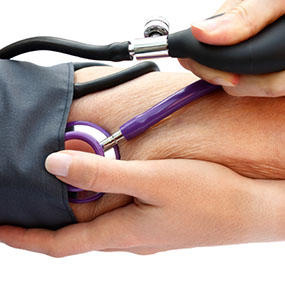 PHOT
PHOTWhen you have high blood pressure—defined as 140/90 millimeters of mercury or above—your blood is actually exerting more pressure on your head, Khorsandi says. And that extra pressure is a common cause of headaches. Plenty of people who have high blood pressure don't know it, since the condition doesn't have many outward symptoms.
(Aside from headaches, which you might attribute to something else.) So see your doctor if your headaches are frequent and unexplainable. If your BP is too high, he/she recommend lifestyle changes like diet and exercise, or prescribe blood pressure medication.
Have something to add to the story? Share it in the comments below.



















COMMENTS
Comments are moderated and generally will be posted if they are on-topic and not abusive.
For more information, please see our Comments FAQ